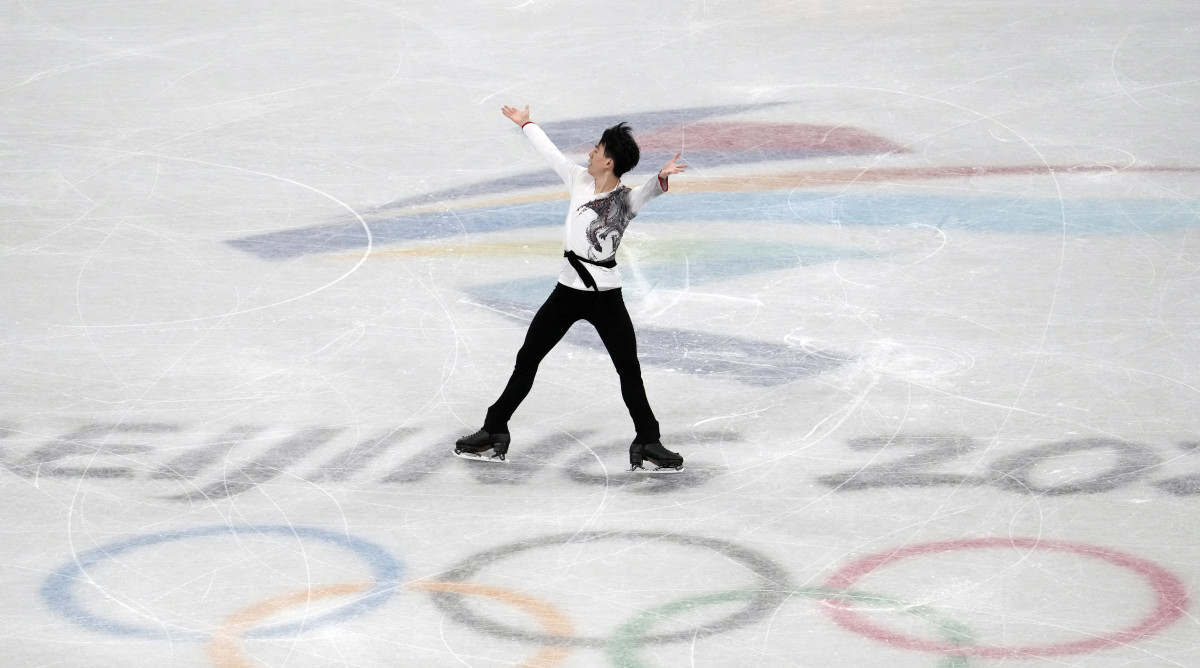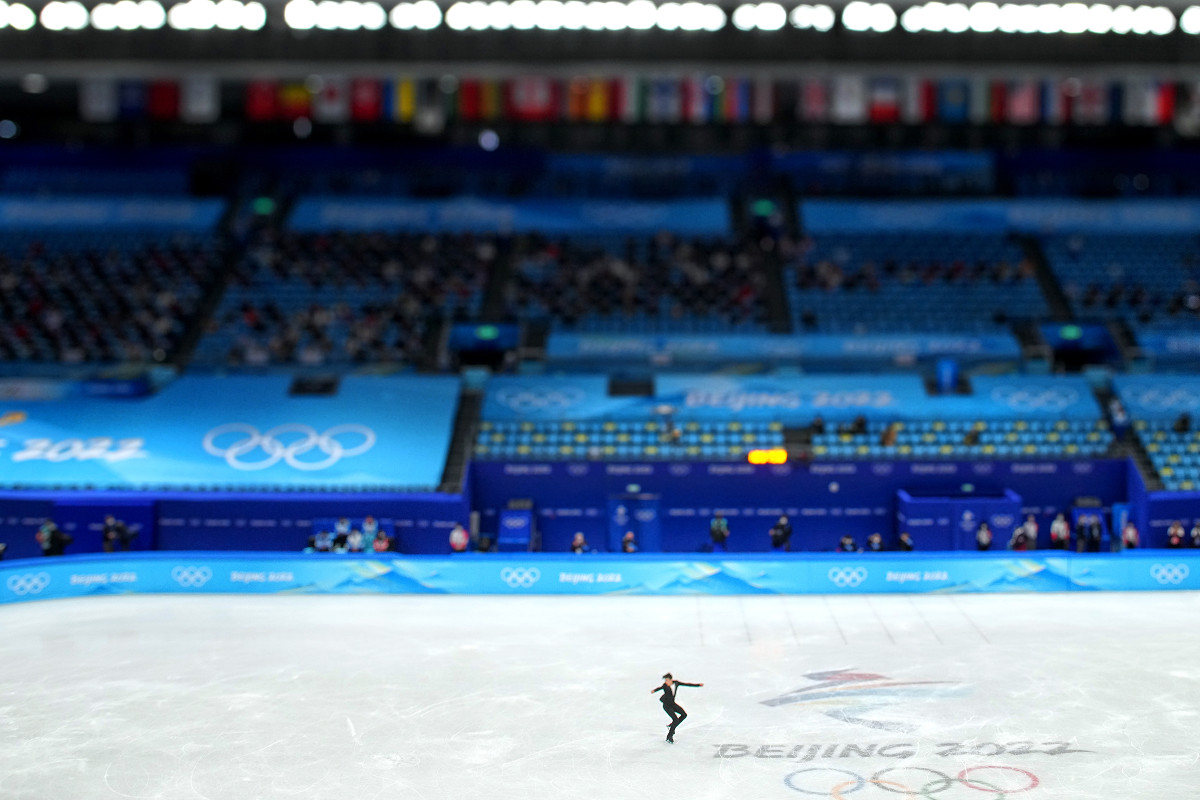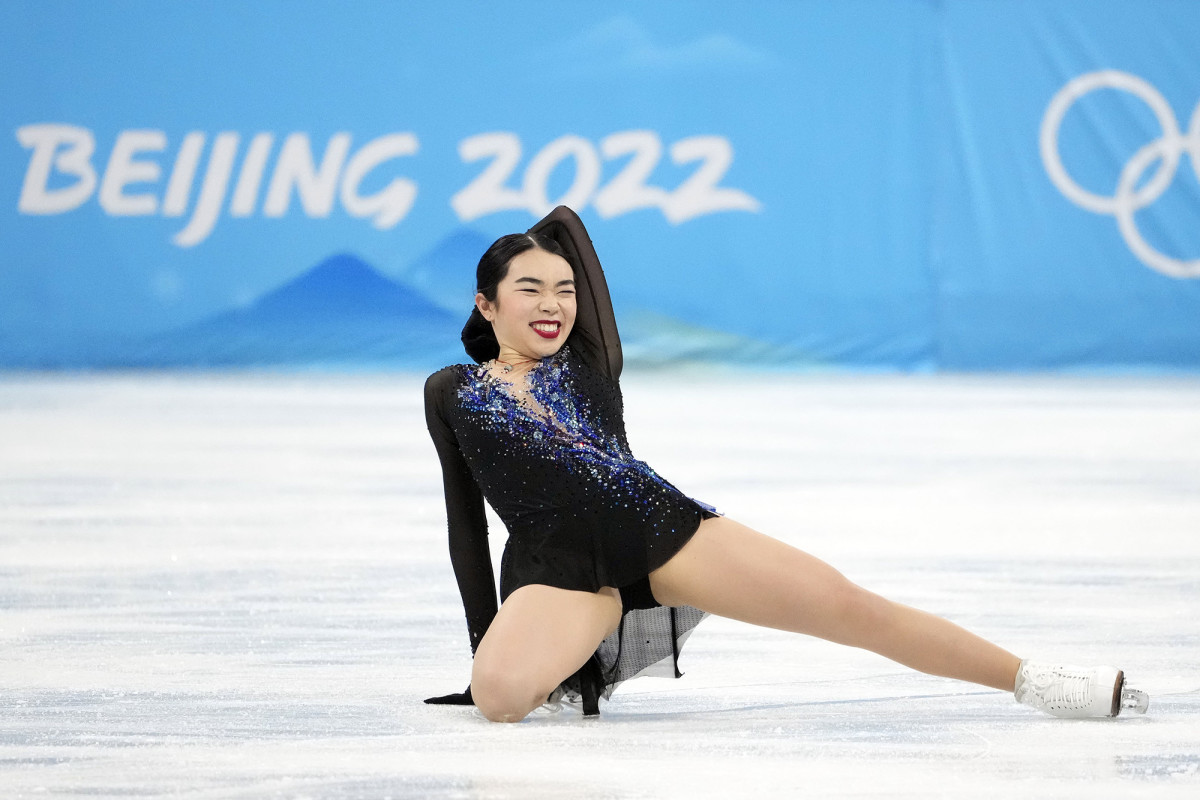U.S. Figure Skating Isn’t Too Concerned About Falling Short in the Team Event
BEIJING — Realistically, Team USA wasn’t going to win gold in the team figure skating event. Sunday’s frustrating performance just made that clear.
Two days after three Friday sessions unexpectedly left the Americans in first place by two points, Karen Chen and Vincent Zhou helped give Russia a lead it is unlikely to relinquish, 45 points to 42. The U.S. needed to keep it close in the women’s short program and men’s free skate to stay within a mistake of the Russians. Instead, both Americans stumbled, figuratively and literally.
“I'm definitely disappointed,” said Chen after she fell on a triple toe loop, typically a reliable jump for her, and finished fifth. Zhou gave his performance a B-minus, perhaps a generous grade given that he bailed on a quadruple jump attempt and finished third. “It wasn’t a lights-out skate, obviously,” he said. “But it wasn’t a disaster. I’m better-trained than to let a disaster happen.”

He added that he thought it was “a little harsh” to suggest that he and Chen failed to come through. Both skaters said they were grateful for the opportunity to get their legs under them on Olympic ice before the individual events.
Those comments laid bare the truth: The U.S. was never going to win the team event, because it doesn’t care that much about the team event.
The Americans don’t have the horses to compete with Russia’s trio of otherworldly teenage women’s singles skaters, so their only chance to steal a victory would have been to send out men’s singles gold-medal favorite Nathan Chen twice. That would compromise his performance in the individual event, which will have much more impact on his legacy than the difference between gold and silver in the team competition.
Even asking Chen to skate Friday’s short program was pushing it. He delivered, executing two quads and a triple Axel to record the second-highest short program score in Olympic history, 111.71, and give the U.S. 10 points. He had volunteered to compete in Sunday's free skate as well, but he knows as well as anyone that he needs to rest before the individual event starts on Tuesday. So, U.S. officials informed Zhou shortly after last month’s national championships that he would be the pick.

Team captain Evan Bates said they valued Chen and Zhou’s status as two-time Olympians. “We always want to use our most experienced skaters,” Bates said. (For his part, Russian captain Nikita Katsalapov said he was surprised to see Zhou.)
On the women’s side, Alysa Liu, the only American who can compete a triple axel, might have been a stronger choice than Chen, but Liu was unavailable for reasons U.S. Figure Skating has not yet disclosed. And regardless, Chen said officials told her a month ago she’d compete in the team event.
“I’m not gonna lie,” Chen said. “I definitely felt some pressure. At the end of the day, it's all coming from myself—I want to skate well for myself, for my team, for my coach, for my family, for all these people.”
She said having a month to think about skating in the team event did not add to the pressure. Zhou said that for him, it did.

There should be less pressure on Monday, when the event concludes with the pairs’ free skate, the ice dance free dance and the women’s free skate. Japan sits in third, with 39 points, after a stunning 208.94 by 18-year-old Yuma Kagiyama. (His first-place score, knocking Russia’s Mark Kondratiuk into second, briefly offered Zhou a chance to give the U.S. a tie; he said he had not done the math.) Barring catastrophe, the Americans will earn silver. That should not be a disappointment, especially because they finished third in 2014 and ’18. Silver is what they were playing for anyway.
More Winter Olympics Coverage:
• U.S. Figure Skating Isn’t Too Concerned About Falling Short in the Team Event
• Extreme Weather Shows That Even These Olympics Will Have Unpredictable Moments
• Polish Luger Overcomes Gruesome Injury to Compete at Olympics
